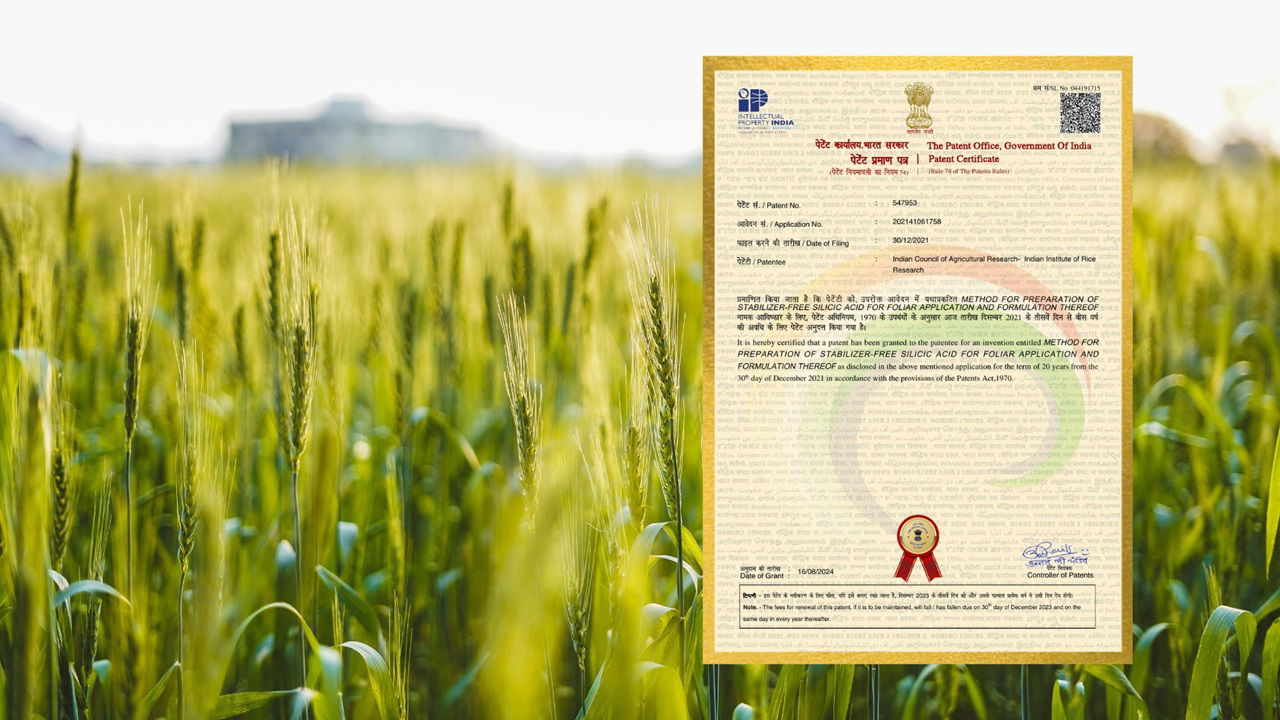
Scientists from the ICAR-Indian Institute of Rice Research (IIRR), Hyderabad, have made a significant advancement in Indian agriculture by developing a novel method for preparing a stabilizer-free silicic acid formulation. This innovative approach, designed for foliar application, has the potential to boost crop grain yields by at least 10%. The technology promises to enhance the productivity of crops, particularly rice, which is a staple food for millions across the country.
The invention recently received a patent (Indian Patent No. 547953) from the Government of India, with the patent being granted for 20 years starting from December 30, 2021. This prestigious recognition highlights the groundbreaking nature of the technology and its potential contribution to India's agricultural sector.
The research team, led by Dr. M. Mohibbe Azam, includes a group of dedicated scientists: Dr. K. Surekha, Dr. R. Mahendra Kumar, Dr. Amtul Waris, Dr. Mangal Deep Tuti, and Dr. R. Abdul Fiyaz. Their work focuses on the use of silicic acid, an essential micronutrient for plants, which plays a critical role in improving crop resistance to environmental stressors like drought and diseases. By creating a stabilizer-free formulation, the team has developed a more efficient method for plants to absorb silicic acid, ultimately leading to improved crop health and yields.
This patent marks a significant step forward for agricultural research in India, offering a sustainable solution to enhance crop productivity and ensuring food security for the nation. As this formulation becomes more widely adopted, it could help farmers achieve higher yields while maintaining environmental sustainability.









